Based on statistics an estimated 12.5 million hunt every year, which accounts for about 7% of the country’s population. All these hunters hunt in areas where it is legal to do so which account for 60% of the country.
For many of these people, hunting is just another sport. However, for some hunting is more than that, it’s a profession. With big game hunting attracting the largest number of hunters, 10.7 million, there are many wannabe pro deer hunters out there. As such, if you want to join the ranks of professional hunters you will have to learn how to behave like one. And while becoming a professional hunter comes with its own benefits and perks, no one can become a pro overnight.
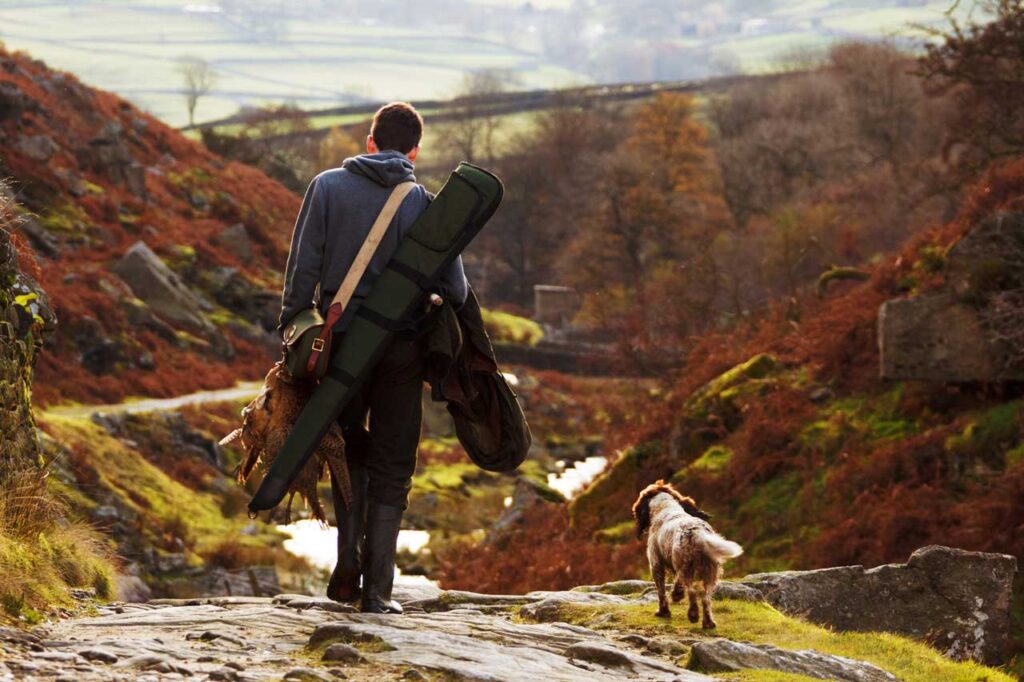
However, you can fasten the process by listening to expert professional hunters. Speaking of listening to the pros, I asked 30+ expert professional hunters what three items they never forget to carry when going on a hunt. Also, I asked them to share with me any tips, warnings and general advice and tips they might have for beginners. Below are the responses I received. But before we begin I would like to thank all the hunters who took part in this process.
Trent James Cole Jr. – Cole Outdoors Production

- What Are The 3 Essential Hunting Gear That I Never Forget To Carry?
Three essential gear I never forget while hunting:
- Never forget to bring my hunting license.
- Always check for my release when bow hunting and ammo for firearm.
- Binoculars specially Rangefinder Binoculars
Read Tarheel3Gun’s Unbiased budget binoculars review from this link – https://tarheel3gun.com/best-binoculars-under-100-dollars/
John Gale – Back Country Hunters

- What Are The 3 Essential Hunting Gear That I Never Forget To Carry?
Weapon (My deer hunting crossbow, rifle or shotgun), arrows or ammunition, and a kill kit with knife, tag/license, and all the essentials to get my meat out fresh, clean, and cool.
- My Advice To The New Hunters
As an organization that happily helps mentor new hunters but often new backcountry hunters, I always provide the following advice:
There are three core elements to successful hunting adventures:
- Planning,
- Preparation, and
- Diligent execution.
Planning
First you must plan as far out in advance as you possibly can.
Figure out what you want to hunt, where you want to hunt the species of choice, and what time of year.
Then build a logistics plan around those elements knowing that things will change, hunting is dynamic and when you have so many elements that can change unpredictably, you need to build backup plans and backup plans for your backup plans. Which leads me to the next core tenet, preparation.
Preparation
This is just as essential as the planning phase. You need to get in top physical condition, particularly if you are big game hunting in challenging terrain that will demand a great deal of strength, endurance, and cardiovascular health. Nothing spoils a hunt like being out of shape and when it comes time to pack out that big bull elk, you better be ready to move quick with a heavy pack so you can get that meat cool and secure. It’s great to use specialized elk hunting boots for moving fast.
Plus if your hunting buddies are in great shape and you’re not, that unwritten social contract with your partner gets tested if you literally can’t carry your share and keep up.
Another essential part of preparation is more logistically oriented. You have to make sure you have the right gear for the hunt and if you are hunting big game, there’s usually a lot of more of it. My kit changes dramatically from morning waterfowl trips to all day upland excursions to 7-10 day backpack/horsepack hunts 10 miles into the backcountry.
You need to plan for every possible need and make adjustments to your kit… don’t neglect your first aid kit either. Even for shorter day trips, I always pack a small first aid kit with essentials like bandages, antibiotic ointment, a good anti-inflammatory like ibuprofen, and epinephrine if you have allergic responses to things like bee stings.
Don’t neglect your feet either. Good boots are only as good as they fit your fit and have enough miles on them to be broken in. If you don’t have the best rubber hunting boots with outstanding ankle support, don’t be afraid to spend $400 on a pair if you can afford it.
Don’t do it the day before your hunt, however. Do it the summer before a fall hunt and wear them on training hikes, wear them to work and if you work out in a gym, don’t be afraid to load your big game pack up as you would for your hunt (minus the food) and put those boots on for some serious treadmill and stair climber time.
You may get some strange looks but those in the know will give you the knowing nod and think you’re a badass who is on their game….you might even guilt them into joining you to do the same thing.
Diligent Execution
The next important thing, especially if you’re big game hunting, is to know and scout your hunting area. You may think the reason to do this is so you can gain an advanced understanding of the habitat, terrain, and animal movements but the more important reason is to become familiar with your surroundings. Buy the best map you can get and then consider buying the quads for surrounding areas too.
Bring your compass, know how to use it and if you have a GPS, bring that too but try and use your map and compass first. Knowing the area and terrain intimately will not only help you get on your quarry faster, you’ll know where the water is, you’ll be able to build in exit or shelter strategies for foul weather or possible injury and you’ll know the best way to pack your hard-earned meat out after a successful hunt.
Use your scouting time as a safe and controlled outdoor training opportunity to use your map and compass. GPS units are amazing but they run out of batteries, get lost, get damaged, and if you don’t pay attention, they can lead to very inaccurate readings.
I remember one time where I marked the location of my truck and failed to pay attention to the satellite signal and the accuracy of my location. I went in about 8 miles and was coming out at night using only my GPS when I realized that I was in the wrong place.
Not having visual references to get your bearings as you hike and move at night is always challenging but in this case, I was also relying on GPS coordinates that were taking me to the wrong location.
Now I was only off by a few miles but by the time I realized it, I was tired, hungry, and ready for that cold beer in my cooler at the truck. Because I always have my map and compass and had a good idea of where I was at based on the surrounds I could see, I was able to set a course and get back safely.
I was able to use my GPS unit (after the satellites were fired up and it was reading accurately) to confirm my current location as a back up but the map and compass saved me from spending a very uncomfortable and potentially dangerous night out that was unplanned in a late season hunt at 12,000 ft in Colorado in late November with temperatures in the single digits. The beer I drank at the truck that night remains one of the very best I have drank in my entire life.
Even if you are doing a casual duck hunt for the morning, you still need to know how to get to your spot in the dark and have planned to bring a headlamp (I always bring two and have extra batteries on me for every hunt) and the essential hunting gear to trudge through the marshes or flooded timber.
Even if you are going upland bird hunting for the afternoon, you need to make sure you have your shotgun, the right shells, water and a good vest.
If you are archery hunting, there’s similar preparation for remembering your compound bow, arrows, broadheads, and your bow release if you use one (if you do, you should bring a back-up release and extra loop material too).
Planning and preparation are everything. There’s more I could go into here under preparation but you get the idea; be ready to hunt by knowing where you’re going, ensuring you’re physically able, ensure that you have the essential hunting gear and equipment necessary to accommodate foreseeable needs but also plan for the unpredictable, and be prepared to get home safely whether you are coming out heavy with table fair or empty-handed ready for the next attempt.
Bonus Tip
The last thing I tell people is to take all this information piece by piece and start where you’re comfortable and having fun.
Your first hunt doesn’t have to be a 10-day backcountry excursion for elk 10 miles into the Wilderness. I suggest that people work up to a goal like that by starting off with a morning or evening turkey hunt or find a friend with a dependable duck ground blind.
It’s real, you still have to plan and prepare for the hunt and if you stop having fun or you forgot something important or something happens that you didn’t think to plan for, the truck is usually close by and you can easily abort the mission if things go sideways.
The next important piece that could mean the difference between success, failure and wanting to become a hunter for life is finding a place or person(s) where you can get mentorship and ask all the questions you may have without ever feeling bad.
So many new hunters find themselves in bad social circumstances where condescending attitudes or other uncomfortable encounters have them hanging up their boots before they even get them dirty on the trail.
Find an organization like Backcountry Hunters & Anglers that has welcoming programs for youth, women and men at any age or experience level. We have great resources like Backcountry University that teach skills and woodsmanship. We have state chapters with plenty of local members and leaders that are happy to take people out. We have great relationships with state fish and wildlife management agencies and can help identify opportunities there with the great programs they offer too.
The other benefit of joining a conservation organization that speaks your language (whether it’s BHA or not) is that you’re giving back to the resources that are providing so much benefit and enjoyment to you. I don’t care what organization you join, but find one that is active and is dedicated to the conservation of fish and wildlife, habitat, public access and the future of our hunting and fishing traditions.
May your long guns be steady and your arrows true.
Tony Mehrl – Hunter Specialties

- What Are The 3 Essential Hunting Gear That I Never Forget To Carry?
Three items I never forget while hunting:
1. Treestand Safety Harness: No matter, If hunting from a best tree stand, this is a must. Hunting without one is just irresponsible. A fall from a treestand could end your life or seriously injure you for the rest of your life. So I the best treestand safety harness is no.1
2. Scent Control field spray: When hunting big game, beating their nose is usually the difference between a great hunt and a disappointment. Sprays like Scent-A-Way Bio-Strike destroy bacterial odors, which allows a hunter a little more forgiveness if they get caught in a bad wind.
3. Flashlight: This is a must because if you end up in an unfamiliar area after dark, it’s important to be able to see where you’re going. Getting lost because you don’t know where you’re at can make a good hunt a disaster.
- Hunting tips For Beginners
Hunting tips for beginners: don’t get caught up in size and “trophies”. Enjoy the hunt for the experience and opportunity to connect with nature. Paying close attention to details will make you a better woodsman and in turn, a better hunter.
Kevin Paulson – Hunting Life

- What Are The 3 Essential Hunting Gear That I Never Forget To Carry?
Three things I cannot live without while hunting are
- A compass,
- Fire starter and
- A first aid kit.
Those 3 things can absolutely save your life. I was once on a hunt and we had scrambled up the mountain to go after an elk and had gotten very very sweaty in the process and once the cold wind kicked in we got cold really quickly with wet clothes from our own sweat. Having the ability to start a fire saved our lives. The first aid kit and compass are safety items that every hunter should carry in the woods.
- My Advice To The New Hunters
The most important advice I can offer the new hunter is to be patient and learn to be patient. Hunting is not easy and being patient is not an easy trait for most of us but it is an important part of hunting. Sitting still in the same spot for hours at a time can be incredibly successful for some hunting situations and can lead to success especially in regards to whitetail deer. If you can master patience, you can kill really large deer.
Barbara Baird – Womens Outdoor News

- What Are The 3 Essential Hunting Gear That I Never Forget To Carry?
- Binos,
- cell phone,
- permit.
You have to find what you want to shoot and ID it. You’ll need a cell phone, providing you have service, for phone use or photos, and of course, you’ll always need your permit/license.
- My Advice To The New Hunters
If you can find a mentor, do. Make sure you also know the limits of your gun or bow. Test it on the range and either sight it in or pattern it — sooo important.If you post a photo to social media, please be careful to represent the animal with the utmost respect. There are lots of tips for photographing hunts
Reel Camo Girl
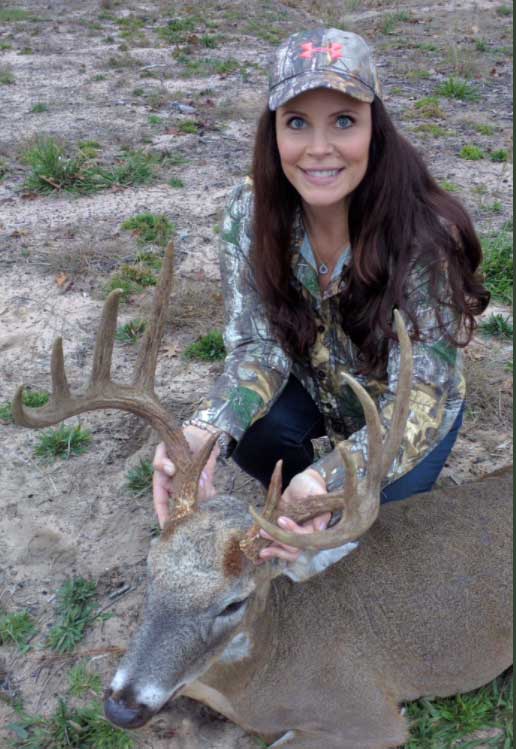
-Cherri Teutsch
- What Are The 3 Essential Hunting Gear That I Never Forget To Carry?
1. Safety Harness: As a bowhunter, one of the most important items I always have with me is my safety harness. Being safe and secure in my tree stand is the first step to a successful hunt.
2. GPS: Hunting in heavily wooded areas means everything looks the same, tall straight pine trees in every direction. Walking out after dark could be tricky without some way to navigate. A GPS, drop pin on your phone if you have signal, or a navigation app like OnXmaps is extremely helpful.
3. Light: Something to light your path when its dark is a good idea, whether it’s a flashlight, headlamp, or your phone. Seeing where you’re stepping is not only a good idea, it’s a safe idea.
- My Advice To The New Hunters Aka Hunting Tips For Beginners
Some sound advice for beginner hunters is to know your intended target. If its deer, be sure to know the physical attributes to look for in a mature buck and be able to make that judgment quickly and with confidence at distance.
Another piece of advice would be to always be ethical when hunting. Follow the rules the Fish and Game Dept. has set in place; they’re there for a reason.
The last piece of advice I’ll mention is for the beginning hunter to be familiar with the area and property lines where he’s hunting. Being in the right spot and staying inside the allotted property lines is always the best choice.
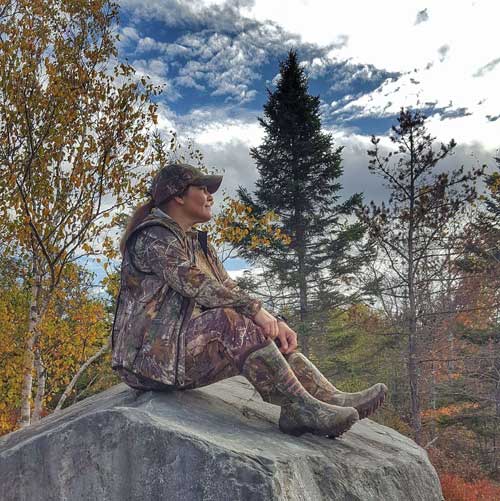
-Tarra Stoddard
- What Are The 3 Essential Hunting Gear That I Never Forget To Carry?
While hunting, I never forget to carry my
- hunting knife,
- lots of water, and
- A flashlight.
- Hunting Tips For Beginners
My advice and tips for those beginning to hunt would be take a hunters ed class with your local DNR. That way you will know how to hunt ethically and legally. You will also learn what items you need to hunt the species in your area. It will help you get familiar with the animals in your area. As well as learn what you’ll need to hunt with. If your interested in learning more from women or gaining a mentor check out www.reelcamogirl.com

-Lauren Hill
- What Are The 3 Essential Hunting Gear That I Never Forget To Carry?
I never go without –
- Extra ammo or broadheads,
- A knife set and
- My Vanguard Binoculars
- My Advice To The New Hunters
ASK QUESTIONS! Don’t be afraid to ask questions! It’s how we learn. Women learn about hunting differently than men. We want to ask questions and feel somewhat prepared and comfortable before we go out. Someone has an answer to any question you have…be sure to ASK
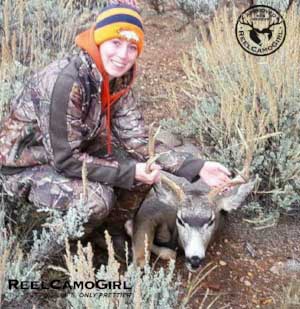
-Chelsie Wilkey
- What Are The 3 Essential Hunting Gear That I Never Forget To Carry?
I always take –
- a best camping knife,
- an extra bottle of water, and
- a backpack.
- My Advice To The New Hunters
Make sure to know the area you are going very well. Know every nook and cranny, this helps with the actual hunt and helping to know where you are at
Steve Sorensen – The Everyday Hunter®

- What Are The 3 Essential Hunting Gear That I Never Forget To Carry?
Essential hunting gear varies a lot. Diverse habitats, widely varying weather conditions, and type of game pursued will mean a hunter’s equipment will vary, depending on whether he’s stand hunting, still hunting, bow hunting, or hunting varmints and small game. For me, it doesn’t matter what I’m hunting, or where I’m hunting, or how I’m hunting, I will always have the following three things with me:
1. A Havalon knife: It’s the replaceable blade knife that beats all others. Havalon’s parent company makes surgical scalpels and other surgical tools, so they know what sharpness is. Others have tried to copy Havalon, but no one makes a sharper, thicker, or more durable scalpel blade. Havalon keeps innovating, with double bladed knives in their line, new handle designs, and better mechanisms. A Havalon knife with a couple of extra blades means you never have a dull knife.
2. A camera with an optical zoom lens: We make memories while hunting, and having a action camera helps record them. Mostly I take still photos, and the opportunities are endless. Take pictures at the kill site. Shoot the sunrise. Snap off a few shots while on the stand. Get pictures of hunting buddies who share the day with you.
An expert news photographer once told me that the secret to taking great photos is to take lots of photos. In this day of digital photography, it costs virtually nothing to take all the photos you want. You’ll be surprised at the collection of memorable photos you get, making the experience the trophy, not just the game you shoot.
3. Juice boxes: I usually carry water too, but when I need a quick shot of energy, apple juice does the trick. You can use any flavor you like, but apple juice is my choice because if game animals scent anything from it, it will be a smell they are familiar with. I take about four juice boxes with me, and whenever I drink one I’m not only reducing the weight in my pack, I’m reducing the bulk because I collapse and fold the empty juice box and carry it out.
- Hunting Tips For Beginners
My best advice has less to do with hunting than it does with the hunter’s attitude toward hunting. Beginning hunters have it tough these days because many aren’t taught by dads who have their best interests at heart. Often, hunting has an unhealthy competitive aspect to it today. Some hunters use it as a way to “one-up” the other guy.So my advice is to focus on the whole experience, not on what you kill, and not on having the best equipment. The old-timers I learned to hunt from never had the best rifles and scopes, and certainly didn’t have the quality or variety of essential hunting gear available to us today, yet many of them were better hunters than we are.So learn early on to appreciate the larger experience, whether it’s the fellowship with other hunters, the beauty of the natural creation, or the challenge of learning about the game you pursue. We can take something away from every hunt, even if we don’t punch a tag.
William Clunie – Havalon Knives
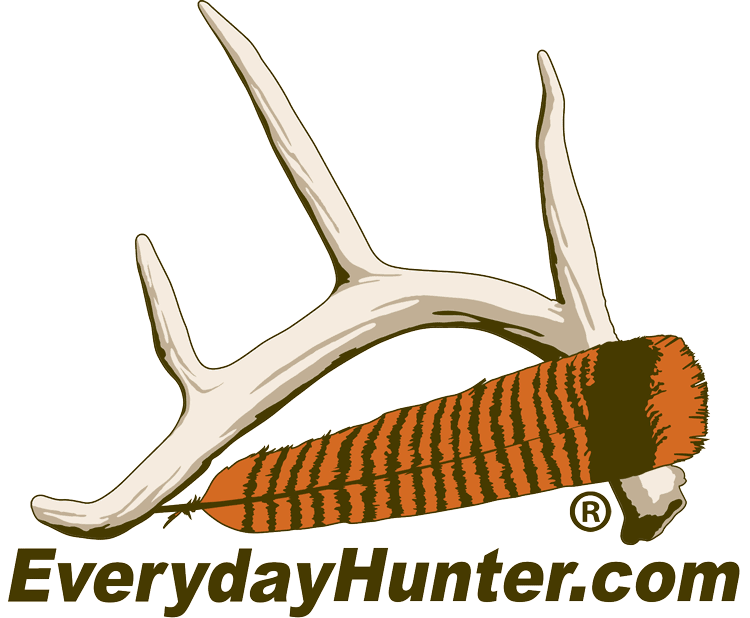
- What Are The 3 Essential Hunting Gear That I Never Forget To Carry?
1. I always have a small kit to start a fire…Bic lighter, matches, and petroleum dipped cotton balls in a 35mm film canister.
2. A water-filter straw from McNett Industries.
3. A knife/multi-tool (my favorite is the Gerber…they are the only ones that use decent steel in the blade).
- My Advice To The New Hunters
Never make hunting competitive and always look for more than the selected game animal in the woods — it makes you a better hunter and you’ll enjoy every day you are blessed with in the woods no matter if you shoot something or not. Stop and smell the coffee. When you see something you don’t understand, research it at home and find out all you can about it. The outdoors is a never-ending source of THE MOST interesting stuff in the universe and you can spend your whole life learning about it and still only touch the surface.
Leon Pantenburg – Survival Common Sense

- What Are The 3 Essential Hunting Gear That I Never Forget To Carry?
1. Quality knife: By this, we’re talking about a knife that can handle the tasks of the hunt.
For deer hunters, for example, you need a knife that can gut, skin and quarter a large animal. The blade should be long enough to split the ribcage and quarter the carcass, and short enough to be nimble inside the body cavity.
The point should work well for the initial under the tail work, but not so pointed as to pierce the entrails when doing the initial spine down, edge up a cut that opens up the abdominal cavity.
Since big game hunting is done in isolated areas, the knife should be able to double as a survival knife.
Finally, the steel should be high quality, so re-sharpening is not required. My choice for a hunting knife is the Ambush Tundra. It has performed extremely well for me on deer and elk. Another good choice is the Bark River 1.25 LT. Either of these knives is a proven performer
2. Quality Headlamp: Dusk is one of the most productive times to take a game animal. But kill one at twilight, and you’ll end up doing the field dressing, and hauling in the pitch dark.If you can’t see what you’re doing, it makes the task doubly difficult. Worst case – you might cut yourself with the knife, and create a survival situation.
A headlamp lets you use both hands, and if you have to drag a buck out, it’s a lot easier to move. There are several really good deer hunting lights on the market. Invest in a quality product.
3. Map and Compass: Most survival situations begin when someone gets lost. It doesn’t matter how well you know the terrain – if you’re out after dark in a thicket following a blood trail, you could get turned around. I carry a GPS on hunts, but I don’t trust any piece of gear that relies on batteries. And, there is always the potential that you might be in a gully or ravine where the GPS can’t get satellite coverage.
Several years ago on an Idaho elk hunt, my brother Mike was in that situation, Dusk came and he had been busting brush in a ravine for an hour. He looked at his wrist compass to get the direction back. It was gone. Luckily, Mike had a backup compass in his pack and got back safely. I always carry a quality compass and a backup compass.
- My Advice To The New Hunters
- Leave a note that explains where you’re hunting, when you expect to be back, and any other relevant information.
- Take along a basic survival kit such as Tactical Tomahawks or AX).
- Be able to make a quick shelter.
- Take necessary items in your hunting daypack.
Dean Vanier – North Woods Common Scents
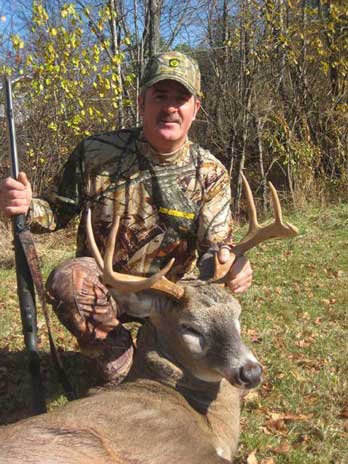
- What Are The 3 Essential Hunting Gear That I Never Forget To Carry?
Other than the obvious: My bow release or bullets… which I have forgotten before. LOL
1. Winter Boots: The most important thing to me is my winter hunting boots. If I can beat the whitetail’s nose on the ground, my odds go up significantly. I keep my rubber boots in a tote with no top on it. The bottom has 3 to 4 inches of peat moss in it. Then add your favorites… Moose crap, Deer crap, maybe a little doe urine and mix it all up. Bury your the lower part of your boots in it for a week or so and your tracks are invisible.
2. My North Woods Scent Holster: Since I am a scrape hunter this is huge for me. The scent holster allows me to carry both buck and doe Urine’s right on my hip. It allows me quick and easy access to make a scrape in 10 seconds without digging through my pack or searching my pockets. It also allows being to make a quick scent post our long drag line by spraying every 20 feet or simply hitting my boots with a quick shot.
3. My call: A good doe bleat and a buck grunt. The 3 main defense mechanisms of the Whitetail deer: Ears, Eyes and Nose can be used to your advantage. If you can Beat 2 of the 3 you have a great chance of killing that buck. For example, ( while approaching your stand in the dark, you blow out deer everywhere.) I will stomp my feet several times, snort back, and give a spray of the doe or buck urine. Then Climb my stand quickly. 70% of the time, those deer turn right around and come back to see what spooked them. Sounds Like deer and smells like deer.
Same goes while hunting near a scrape or rub line. Bucks will circle downwind to scent check the scrape. A soft grunt or a bleat will often bring them into bow range. Again using their defense mechanisms to your advantage.
- My Advice, Tips and Warnings To The Beginners
- Advice:
I think the best advice and tips for beginners is to be patient, listen to experienced hunters and ask questions. I said experienced, not cocky. Every experienced hunter has had a learning curve. Some quicker curves than others.
To learn, you need to make mistakes. What an experienced hunter can do is help you avoid mistakes. Where and why to hang a stand. Which side of a tree to hang a stand. Understanding deer behavior and movements. Read and learn as much as you can on the Whitetail. Respect what you experience, it will come back ten fold.
I think the best advice for beginners is to be patient, listen to experienced hunters and ask questions. I said experienced, not cocky. Every experienced hunter has had a learning curve. Some quicker curves than others.
To learn, you need to make mistakes. What an experienced hunter can do is help you avoid mistakes. Where and why to hang a stand. Which side of a tree to hang a stand. Understanding deer behavior and movements. Read and learn as much as you can on the Whitetail. Respect what you experience, it will come back ten fold.
- Deer Hunting Tips:
Scout in the spring. Over the winter everything froze in time. In the spring the scrapes look like new. The rubs still have shavings on the ground. Set up your stands, clear your lanes and tack in during the spring. come opening day that buck will have no idea that he is being hunted. Learn and understand Deer behavior. The more you know about the Whitetail the more you can predict what the next move should be.
Understand the whitetails defense mechanisms. If you can beat their ears, eyes and tenfold you will keep your freezer full until the following year.
- Warnings:
To date, I have shot more deer from a tree without a tree stand and did not start using a fall restraint until 4 years ago. There was no excuse and I was lucky. Don’t tempt fate. I have seen what a fall can do to a hunter. You will never be the same. Always wear a safety harness. Even experienced hunters can make mistakes, as a beginner don’t rush and always practice safe hunting. Remember you can not take an arrow or a bullet back. When it’s gone it’s gone. Don’t forget GPS, Compass, and extra Batteries and always let someone know where you are going.
Todd Pringnitz – White Knuckle Productions

- What Are The 3 Essential Hunting Gear That I Never Forget To Carry?
Items I won’t go into the field without:
- Ozonic’s
- Range Finder
- Bino’s
- Hand Warmers
- Hunting Tips For Beginners
- Bad habits are hard to break once you have learned them. My advice to any beginner hunter is to spend some time shooting with people who have experience with archery. Learning the proper form and technique early can save you, A-LOT of pain, later in your hunting career. Learn proper so you don’t have to un-learn, and re-learn later.
- Practice like you are hunting. We all get into “the groove” and will shoot the same distances, at the same targets, over and over again. That’s ok, but that doesn’t represent a hunting situation. Remember, in the field when you are hunting a live animal; not a foam target. No (2) shots in the field are ever the same. Get used to shooting random distances, every shot.
- Aim low at live animals, and targets! How low depends on the situation and distance you are shooting. Deer will NEVER jump “up”, they simply drop to run. I practice with the following “standard” approach that I have made routine, and it will kill more game on the field I guarantee it! Targets are foam and don’t move. Practice on your targets like they are real animals, don’t worry about the kill zones shown on the targets; that’s not where I aim at a live animal, so I follow the same ritual when practicing as well. I train my muscle memory to do the exact same thing in my back-yard as in the field hunting, and it works!
20 yards – 1-2” low
30 yards – 2-3” low
40 yards – 3-4” low
My best advice for beginners who’ve not shot too many animals, restrict your shooting distances to 25 yards or closer. Beyond that, you are asking for trouble unless you have great experience judging distances, and know the body language of the game you are pursuing well. Follow your gut, if it doesn’t feel right – DON’T SHOOT! I’ve never once in 30 years of bowhunting regretted not shooting when it didn’t feel right. I have however regretted some of the shot’s I’ve taken that I shouldn’t have. Learn from me, follow your gut over your brain that says “shoot”…
John Eberhart – Eberhart’s Whitetail Workshop

- What Are The 3 Essential Hunting Gear That I Never Forget To Carry?
Other than my bow and harness (I hunt from a harness which is in my pack at all times),
1. Rangefinder,
2. Rattle bag,
3. Grunt call.
I carry a lot of stuff but these are key items and my doe bleats are made vocally.
- My Advice To The New Hunters
Hunt safe and when climbing always have 3 points of contact before moving up another step. Either have both hands and one foot on a step or both feet and one hand before moving up or down the tree. Falling from a tree is permanent as we don’t get do-overs.
NB. A Message To All Other Hunters :
Recently Deer & Deer Hunting got ahold of me to discuss doing a bunch of 3 to 5 minute topic videos for public and heavily pressured hunting and they flew out a videographer and we filmed about 40 topic videos and of course at least one will be on hunting from a harness system and a couple will touch on scent control. These will begin airing on the Deer & Deer Hunting website in May with two each airing in May and June and then one each week from July through November and beyond. I’m sure some will also be used on one of their 3 TV shows. These were fun to do and I’m quite sure we will do more in the future and according to the videographer that’s been filming for over 30 years in the hunting industry, most of the topics we covered have never been covered before. The cool thing is that I get to choose the topics and of course already have a bunch more to do in the future.
William Schwarz – Odu Magazine

- What Are The 3 Essential Hunting Gear That I Never Forget To Carry?
I think of making it home before I think of having a successful hunt.
1. A first aid kit with a backup prepaid cell phone in a waterproof package,
2. Water
3. Snacks
- Hunting Tips For Beginners
As with all hunting, beginners should do a couple of things first. One is accompany a successful licensed hunter into the woods on a few hunts to ensure they understand etiquette, safety and basic principles of hunting one type of species vs another. The second it to take a hunter safety course and successfully complete it. Practice practice practice. A hunter no matter of they use a shotgun, rifle, handgun, bow or crossbow should be accomplished with his device. A final piece of advice on a hunter first visits into the woods, he or she should not go alone.
Ron Spomer – Ron Spomer Outdoors
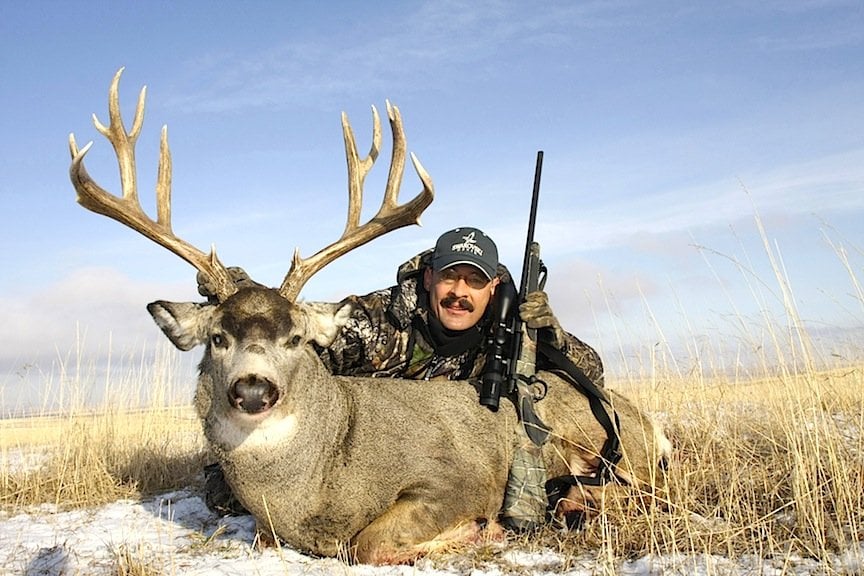
- What Are The 3 Essential Hunting Gear That I Never Forget To Carry?
- Firearm,
- ammunition,
- hunting license.
- My Advice To The New Hunters
Learn your game’s habitat and life habits. Look, see, then stalk. Be patient but persistent. Hunt legally and ethically. Always respect your game, your hunting heritage and yourself. Study Nature and wildlife. Give back; don’t just take.
Cousin Lisa – Ron’s Guide Service
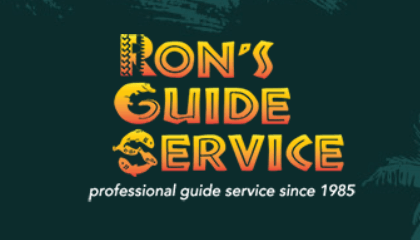
- What Are The 3 Essential Hunting Gear That I Never Forget To Carry?
The three items I never forget to carry during hunting are:
1. My weapon of choice, usually a shotgun. Shotguns are perfect for a clean and efficient kill for most types of wild game. I tend to avoid buckshot when using a shotgun, just because I have great aim and do not need to rely on the spray that is typical for buckshot.
2. My hunting license, if the type of game I am hunting requires a license. Duck hunting in Florida requires a license for most people unless you are under 16 years old or over 65. Alligator hunting is different if you are hunting on private land, you can act as a farming agent or trapping agent which is a completely different thing from the standard lottery and public land hunt. You do not need a license for hog hunting in Florida since hogs are considered a nuisance.
3. Lipstick, because I never know when I will come across a handsome hunter out on the field!
- My Advice and tips To The New Hunters
The number one piece of advice that I have for hunters that are just beginning is to be patient. Be patient with yourself, hunting requires a lot of skill, and what you see on TV is often hours and hours of experience and hunting time edited down to a half hour program. If you are trigger happy you will most likely miss the best shot and scare the animal off or shoot the animal and risk it running or swimming away. Be patient with the animals. Their behavior can be unpredictable, so it is important to be patient and observe before you get close, especially with wild hogs, since they can be very dangerous. Duck hunting requires the most patience since you have to sit still and quiet for hours. As long as you are a patient person you’ll be a successful hunter.
Jeff Courter – Sportsman Tracker

- What Are The 3 Essential Hunting Gear That I Never Forget To Carry?
- My Phone – I use the HuntWise App for land boundaries and tracking through the woods
- Gloves – I really like to have dexterity in my fingers when hunting, especially when bow hunting or pulling a trigger. I also like them to be warm. Having great gloves helps with both.
- Ammo – Hunting takes a lot of effort and relies on many factors. Having the right ammo and enough are crucial. You’ll definitely remember the times you forgot!
- My Advice To The New Hunters
- Be in the moment. With cell phones, tech, and tons of new gadgets out there, it’s easy to get caught up in “capturing the moment” rather than “living in the moment”. God gave you a brain to store some incredible memories. Make sure you store them there first before you replay the GoPro footage.
Druy Outdoors

- What Are The 3 Essential Hunting Gear That I Never Forget To Carry?
- Rangefinder,
- knife,
- tags
- My Advice To The New Hunters
Too much intrusion for deer hunting is a recipe for failure. Less is more, scout using trail cameras and binos.
Brandon Bishop – Foggy Mountain Guide Service

- What Are The 3 Essential Hunting Gear That I Never Forget To Carry?
Three items that I always have with me while hunting are
- A compass,
- Lighter, and
- Spare ammo.
The reason for this is when hunting woods like we have here in Maine it is easy to get turned around. A compass can get you in and out of the woods day or night. Even if a person did not take a compass reading at the truck, a compass will ensure that you are heading in one direction, not doing circles in the dense timber.
A lighter is also in my pocket if you happen to fall at a brook crossing in the below-freezing temps and the truck is a distance away you can build a fire to dry clothes and warm your body. Another good reason is if lost, you can build a fire to warm yourself until help arrives.
Spare ammo is a must. A hunter’s worst nightmare is hearing the dreaded noise when pulling the trigger “click”. You want to be able to reach into your pocket to reload and maybe able to get a second chance at the trophy you are after.
- Hunting Tips For Beginners
My advice to beginner hunts in scout, know the territory you are about to go into and be sure to always tell someone where you are going in case of an emergency.
James Gwilliam – Kentucky Hunting Outfitters
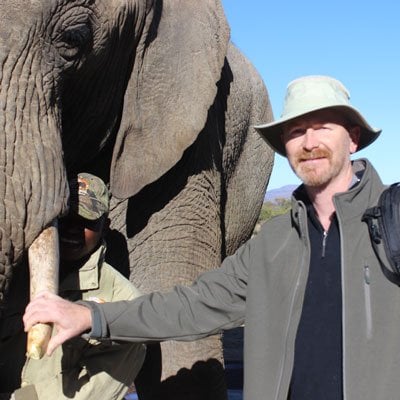
- What Are The 3 Essential Hunting Gear That I Never Forget To Carry?
Other than the obvious things modern deer hunters need when out in the woods (cell phone, gun, etc.), there are a few items even the most experienced hunters forget. And when we forget these items, it’s a flat out nuisance or disappointment:
1. Flashlight: It’s easy to remember the flash for a morning hunt, but I can’t count how many times I’ve forgotten one when going out in the afternoon. You know the feeling when you get out of your stand at night, you can barely see in front of you, and start your walk back. You have your orange on, but orange just isn’t good enough when you’re walking on hunting ground hoping a neighbor hunting a property line doesn’t mistake your rifle or bow for deer horns. And walking on state land in the dark without a light, you’re crazy!
2. Seat Cushion: Some of us hunt dozens of stands and they’re not all the same. Have you ever had to sit on that mesh or a seat made like a hammock? It’s not comfortable. How about getting out to a stand with a wet seat? It’s just a matter of time before it seeps through your multiple layers of clothes. And just like fishing, the key to successful hunting trips is more time with your “lure in the water”. You have to be comfortable to stay out there an extra 45 minutes here and there.
3. Hunters Orange: To say I’ve always wore orange is a flat-out lie. To say I the government has a right to force me to wear a certain color while I walk to my stand on my own property, well, that’s just life. I look at everything as the letter of the law vs. intent of the law being a former cop. The law was written with the intent to stop people from getting injured. But if I’m walking with my bow on my own land, not near a property line, should I really be worried? Should I have to follow the law? Is this law stupid? Absolutely. Are they going to prohibit people from taking jobs that are over, commutes because people die in car accidents? Either way, I always do what I believe is right and safe for me. I simply don’t care what some fat judge or a lying politician has to say. To the point of this article, you should always have orange on your person somewhere so you can pull it out when needed. And when you’re around younger hunters, you should always be setting a good example for them by wearing orange and following the law (no matter how intrusive it is).
- My Advice To The New Hunters
Over the years, odds and probability are stacked in the casino’s favor. If you simply apply the information you personally have, you will over time outperform your friends and dramatically increase the % number of bucks you take over a lifetime. I’m certain where I sell Kentucky deer hunts I have in writing requiring hunters to wear 4 safety harnesses and to wear orange.
Ken Nordberg – Dr Nordberg On deer Hunting

- Hunting Tips For Beginners
- What Are The 3 Essential Hunting Gear That I Never Forget To Carry?
Three things I never fail to take with me while hunting whitetails:
- My compass (for forest navigation, when needed),
- wooden matches in a waterproof container (seldom used, but when needed they are a lifesaver) and
- My field dressing knife (it has countless functions).
All are important for survival. That’s first. Tools strictly for hunting come second, my never left behind backpacked hunting stool for ground level stand hunting, rifle and grunt call, for example.
Here’s a good tip for beginners: become familiar with your hunting area (landmarks, trails, sites frequented by deer, etc.) by thoroughly scouting in early spring before leaves begin growing. Deer signs such as antler rubs, ground scrapes and evidences of browsing are as fresh looking then as during the previous fall hunting season and they are much easier to spot at greater distances. At this time whitetails will be using the same trails they normally use after leaves have fallen in fall. Their tracks will also easier to spot and measure (lengths revealing classes of deer that made them). When time to scout before hunting in fall (2-3 weeks before opening day) you’ll know exactly where to look for fresh deer signs made by specific deer, big bucks, for example – your next places to stand hunt. Forget about wide fields of view and easy access when searching for stand sites. Instead, always stand hunt downwind or crosswind within sight of very fresh deer signs (tracks, droppings, etc. made by deer). These signs reveal sites and/or trails deer are using right now, today, or likely will be using during the next hours they are active (during feeding hours early or late in the day).
Ikes outdoors
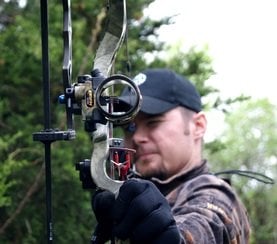
- What Are The 3 Essential Hunting Gear That I Never Forget To Carry?
I always carry
- A knife,
- My lucky buckeye, and
- A camera to film the awesome things you see in the woods and hopefully a successful hunt.
- My Advice To The New Hunters
Better hunting starts with enjoying the moments in the woods. It’s not about heads on the wall. It’s about being outdoors. I consider any hunt a success if it helps me relax and take my mind off my troubles.
Chance Vorderstrasse – Whitetail Instinct
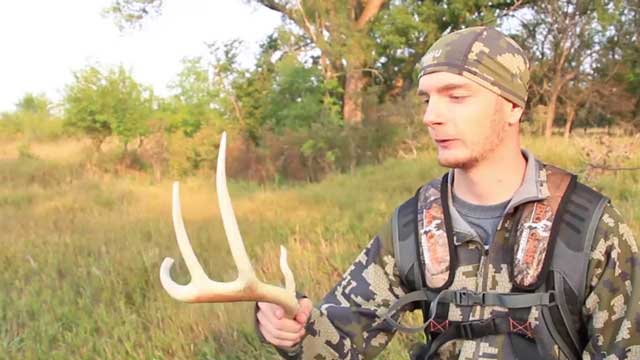
- What Are The 3 Essential Hunting Gear That I Never Forget To Carry?
1. GPS – We are always scouting and marking possible tree stand locations, even while hunting.
2. Milkweed – We use the seeds of the milkweed to tell us an accurate direction for what the wind direction is.
3. Grunt Call – The only call we have found truly effective on public land bucks.
- My Advice To The New Hunters
What you see on TV is not often the reality. If a specific buck or animal makes you happy, then harvest it. Your expectations make a huge difference in how you perceive the hunt afterward.Remember, it is not all about the harvest. It’s about having fun with friends and family, encounters with whitetail bucks, turkeys gobbling on a spring morning, and much more.
Maria – North River Outfitting
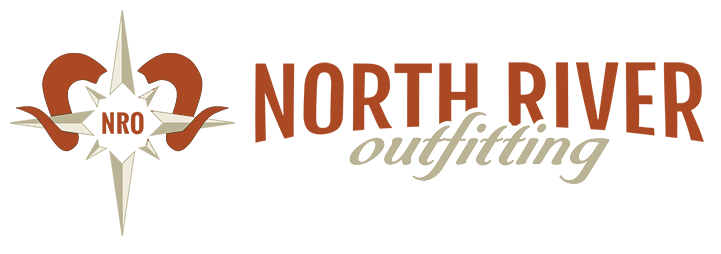
- What Are The 3 Essential Hunting Gear That I Never Forget To Carry?
For a mountain hunt, 3 things to carry.
1. Mole Skin/ new socks: 3pair new socks. Happy feet happy hunter. Moleskin, too many forget about this. If you get sore spots, moleskin is a life saver.
2. Good backpack: A good pack that fits and is comfortable. So many clients show up with small packs Or very uncomfortable packs that cause sores.
3. Bullets: The right bullets for your gun. Too many people don’t double-check when they pack them. And end up bringing the wrong caliber.
- My Advice To The New Hunters
Do your research before you book.
Tim Wells

- What Are The 3 Essential Hunting Gear That I Never Forget To Carry?
- Cold Steel Knife,
- Cell phone, &
- Camera
- My Advice To The New Hunters
- Don’t believe everything that you see on TV.
Eric Price – Lumenok
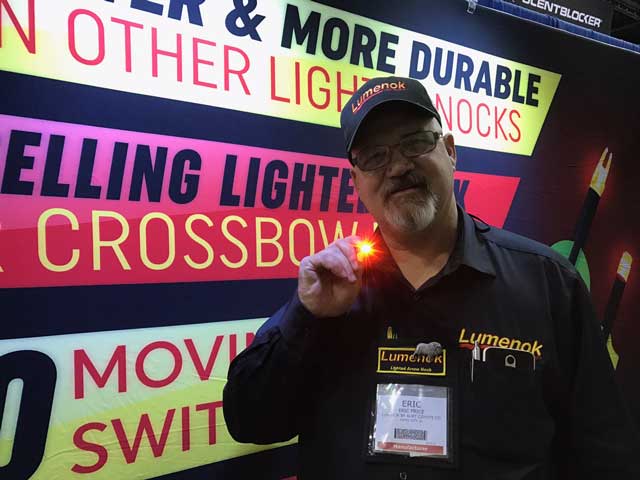
- What Are The 3 Essential Hunting Gear That I Never Forget To Carry?
- Water,
- Cell phone, to give my wife a kiss before leaving.
- My Advice To The New Hunters
Go on the hunt for the right reasons. Hunting is an outdoor pursuit in which success should not be measured the size of a buck or a bird, but the enjoyment that you get from being in the outdoors with nature, family, and friends. Learn about the animals and their habitats. Be respectful to landowners, the environment and to the people that you meet on your journeys.
C Shane Smith – Jackie’s Deer Lures

- What Are The 3 Essential Hunting Gear That I Never Forget To Carry?
I always make sure that I have my
- license and permits,
- Along with sharp knife, and
- compass.
- Hunting Tips For Beginners
Advise for beginners would be to make sure your weapon of choice is tuned in, know your weapon and be sure of your shot.
Sten – Suburban Bushwacker

- What Are The 3 Essential Hunting Gear That I Never Forget To Carry?
1. Reading glasses – you never know when you’re going to need to take a splinter out, or read the combination on a grubby padlock. 2. Wet wipes – bloody hands always seem to upset the public, and you never know when nature may call 3. A multi-tool – I only seem to need wire cutters, a screw driver and pilers on the days I don’t have them
- My Advice To The New Hunters
If you can get closer, get closer. If you can get steadier, get steadier For every shot, you take with your hunting rifle, take 50 with your 22lR, for every shot with your 22LR take 250 with your air rifle.
Grant Alban – Back Country Hunters

- What Are The 3 Essential Hunting Gear That I Never Forget To Carry?
- A warm jacket/rain jacket,
- Headlamp,
- Binoculars
- My Advice To The New Hunters
Learn how to read a map, find a big chunk of public land, leave your vehicle and hike to the middle of it.
Conclusion
First, I want to thank every hunter who sent me their responses. Secondly, since sharing is caring, be sure to share this article with all your hunting buddies who are yet to read. In conclusion, it is my hope that you are a bit wiser after reading this.
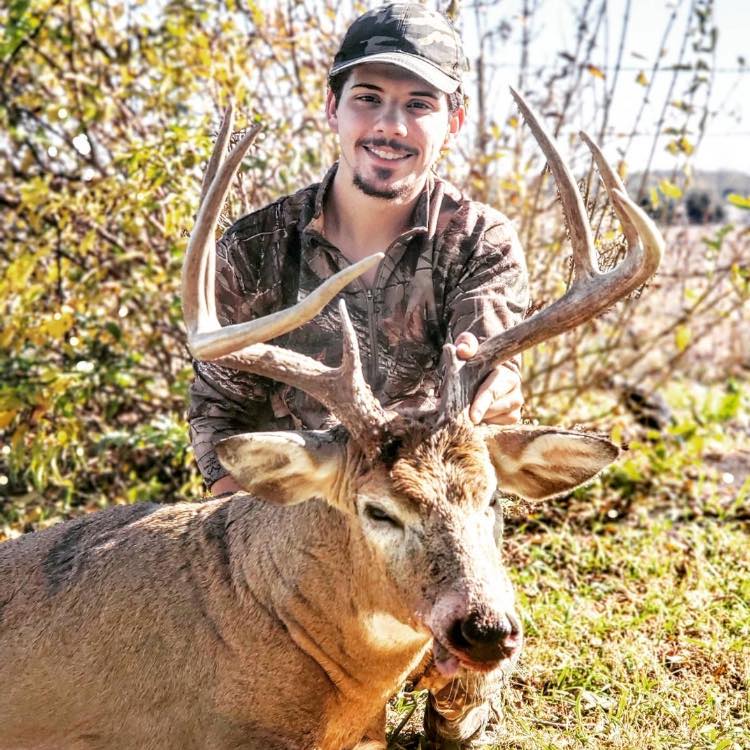
About The Author:
Lake Streeter, A Gun enthusiast, and loves to hunt in the middle of the wood. Always check the latest hunting gears out in the market and try to share his honest opinion with the audience in Tarheel3Gun.
